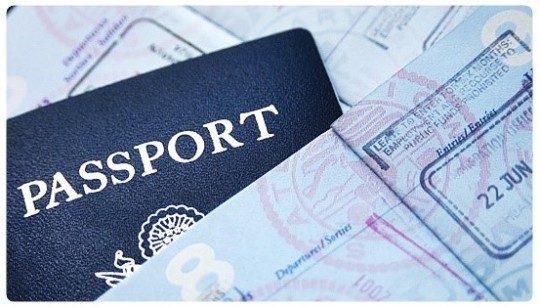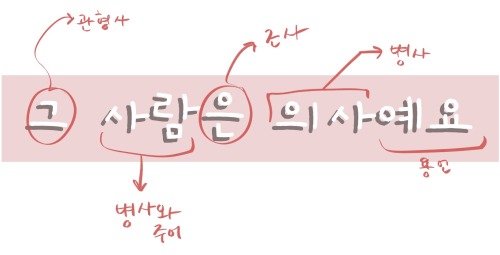#언어
VOCABULARY WORDS #1
The following words are words that are commonly used in a daily conversation. These are helpful and good to know especially to those who are still in a beginner level and to those who are still building up their vocabulary in Korean.
*자주 - frequently / often
*가끔 - sometimes
*거의 - almost
*계속 - continuously
*똑바로 / 바로 - straight
*좀 - please
*가장 - most
*먼저 - ahead / first
*우선 - in the first place
*매우 / 무척 / 아주 - very
*너무 - too / so
*얼마나 - how long/much/many
*정말 - really
*참 - really / very
*많이 - many
*약간 - a few / little
*전혀 - none / not at all
*잘 - well
*일찍 - early
*이따가 - later
*못 / 안 - not
*더 - more
*모두 / 다 / 전부 - all / whole
*또 / 다시 - again / once more
*따로 - separately
*주로 - mainly / usually
*간단히 - simply
*갑자기 - suddenly
*빨리 / 어서 - fast / quickly
*천천히 - slowly
*같이 - together
*벌써 - already
*곧 - soon
*새로 - newly
*금방 - soon
*방금 - just now / seconds ago
*늘 / 항상 - always
*조용히 - quietly
*열심히 - eagerly
*언제나 - whenever
*오래 - for a long time
*없이 - without
*아까 / 좀전에 - a while ago
*특히 / 특별히 - especially
*아직 - yet
*미리 - in advance
*바로 - right now
*직접 - directly
*깜빡 - with surprise
*꼭 - firmly / just
*아마도 - probably
*별로 - particularly
*그냥 - just
*서로 - with each other
Fear Vocab

세상에서 가장 흔한 10가지 공포증 | Top 10 Most Common Fears in the World
- 뱀공포증 | fear of snakes
- 거미공포증 | fear of spiders
- 사회공포증 | social phobia
- 광장공포증 | agoraphobia
- 고소공포증 | acrophobia
- 어둠공포증 | fear of the dark
- 악천후공포증 | fear of severe weather
- 비행기공포증 | fear of flying (lit. planes)
- 개공포증 | fear of dogs
- 치과공포증 | fear of the dentist
(all phrases are 반말/informal)
네가 가장 무서워하는 게 뭐야? | what are you most afraid of?
~(이/가) 무서워 | I’m afraid of ___
고소공포증이 있어 | I have acrophobia
높은 곳이 무서워 | I’m afraid of heights (lit. high places, which is what acrophobia is)
Personal Information Vocab

If you’re planning on going to Korea for school or work. You will absolutely have to fill out Visa paperwork. This is the first section of all Visa paperwork, but are also common words you will see on other official documentation.
어휘 Vocabulary:
인적사항 | personal details
여권에 기재된 영문 성명 | full name as shown on passport in English
- 여권 | passport
- 기재된 | written/entered
- 영문 | English (written)
- 성명 | (full) name
성 | family name (last name)
명 | given name (first and middle names)
한자성명 | Chinese characters for your name (only relevant to people that have them)
성별 | gender
남성 | male
여성 | female
생년월일 | date of birth
국적 | nationality
출생국가 | country of birth
국가신분증번호 | national identity number (to my knowledge, its the equivalent of a social security number)
질문 Questions:
이전에 한국에 출입국하였을 때 다른 성명을 사용했는지 여부 | Have you ever used any other names to enter or depart from Korea?
- 이전(에)| previous(ly)
- 한국 | Korea
- 출입국 | enter and exit
- 다른 | different/another
- 사용 | use
- 여부 | basically means “whether or not”
복수 국적 여부 | Do you have multiple citizenships/nationalities?
- 복수 | plural/multiple
대답 Answers:
아니오 | no
예 | yes
‘예’ 선택 시 상세내용 기재 | if “yes” please write details
- 선택 | choice/choose
- 시| when
- 상세내용 | details of circumstance (i.e. other names used or names of countries where you have dual citizenship)
Airport Vocab

공항 | airport
비행 | flight
비행기 | airplane
비행기표 | flight ticket
편도로 | one-way
왕복으로 | round trip
예약 | reservation
비행기 번호 | flight number
항공사 | airline
항공사 번호 | airline number
승무원 | fight attendant
비행사/조종사 | pilot
부조종사 | co-pilot
출발 | departure
도착 | arrival
국제 | international
국내 | domestic
체크인 | check-in
지연 | delay
탑승 | boarding
탑승구 | boarding gate
__ 번 게이트 | gate number ___ (Chinese numbers)
짐 | luggage
수하물 | baggage
(여행) 가방 | suitcase
수하물 찾는 곳 | baggage claim
초과 수하물 | excess baggage
창가 좌석 | window seat
통로 좌석 | aisle seat
중간 좌석 | middle seat
우선 좌석 | priority seating
빈 좌석 | empty/available seat
여권 | passport
신분증 | id
탑승권 | boarding pass
여권 심사 | passport review
관세 | customs
출입국관리사무소 | immigration office
입국심사 데스크 | immigration desk
입국신고서 | arrival card
출국신고서 | departure card
통역사 | interpreter
사업상 | for business
여행 | travel/for pleasure
The 가나다 of Korean Vocab: 개
- 개구리 - frog
- 개구쟁이- brat
- 개발 - development
- 개암 - hazelnut
- 개인 - private/individual
- 개인적으로 - personally
- 개 - dog
- 개미 - ant
- 개념 - concept
- 개선 - improvement
The 가나다 of Korean Vocab: 가
Nouns
- 가방 - bag
- 가위 - scissors
- 가지 - eggplant
- 가오리 - stingray
- 가리비 - scallop
- 가재 - crawfish
- 가구 - furniture
- 가게 - store
- 가격 - price
- 가사 - lyrics
- 가을 - fall/autumn
- 가수 - singer
- 가족 - family
- 가죽 - leather
- 가난 - poverty
Verbs
- 가다 - to go
- 가깝다 - to be close (in distance)
- 가져오다 - to bring
- 가져가다 - to take
- 가렵다 - to be itchy
- 가르치다 - to teach
- 가능하다 - to be possible
- 가볍다 - to be light
- 가입하다 - to join
- 가라앉다 - to sink
Signs in Korean

Trans: The toilet is clogged! Please put tissue in the bin!
Vocabulary
변기 | toilet
막히다 | to be clogged/stopped up
휴지 | tissue/toilet paper
(휴지)통 | trash can/bin/container (garbage can/bin is 쓰레기통)
넣다 | to put
anon asked: what’s the difference between 부터&까지 and 에서&까지? Please let me know
안녕하세요! Hello! The difference is quite simple :)
부터 ~ 까지: (시간)
- specific to time in general
♡ Example Sentences:
- 1시부터 2시까지 친구를 만났어요
I met my friend from 1:00 to 2:00 - 월요일부터 금요일까지 일해요
I work from Monday to Friday
에서 ~ 까지: (장소)
- specific to distance, destination, and place
♡ Example Sentences:
- 캐나다에서 한국까지 어떻게 가요?
How do I get from Canada to Korea? - 학교에서 대학로까지 버스로 갔어요
I went from school to Daehangno by bus
Hope this helped! If you need any more examples, let me know! These are pretty good grammatical points to know.
Happy Learning :)
~ SK101
품사 - Parts of Speech
Since my post from yesterday, I got a lot of requests to do more linguistic terms. I don’t think this is a comprehensive list, so if there’s any that you know that aren’t here, put it in the chat! Enjoy <3
♡ 자음 – consonant
ex. ㄱ, ㄷ, ㄴ, ㅅ, ㅇ
♡ 모음 – vowel
ex. 아, 어, 이, 애
Hangul [ x||x]
♡ 초성 – word-initial consonant
ex. ㅂ in 볶음
♡ 중성 – word-medial consonant
ex. ㄲ/ㅇ in 볶음
♡ 종성/ 받침 - word-final consonant (받침 literally means “support”)
ex. ㅁ in 볶음
♡ 글자 – letter
♡ 발음(하다) – pronunciation (to pronounce)
ex. 볶음 -> 보끔
♡ 예사소리/평음 – plain consonant (lit. ordinary sound/peaceful note)
ex. ㄱ, ㅂ, ㄷ, ㅅ, ㅈ
♡ 된소리/경음 – tense consonant (lit. Fortis sound/hard note)
ex. ㄲ, ㅃ, ㄸ, ㅆ, ㅉ
♡ 거센소리/격음 – aspirated consonant (lit. rough sound); 거센 from 거세다 (to be rough/violent)
ex. ㅋ, ㅍ, ㅌ, ㅊ
✿ 한국어를 배우는 외국인들은 된소리와 거센소리의 발음을 어려워한다. Foreigners learning Korean have a difficult time pronouncing tense and aspirated sounds.✿
♡ 복합어 – compound
ex. 물고기 (물 “water” + 고리 “meat”), 남자친구 (남자 “boy/man” + 친구 “friend”)
♡ 파생어 – derivative
ex. -관 (building – from 館); 영화 “movie” + -관 = 영화관 “theatre (lit. movie building)”
♡ 접두사 – prefix
ex. 되- (similar to “re-” prefix in English); 되- + 들다 “to enter” = 되들다 “to reenter”
♡ 접미사 – suffix
ex. -님 (polite title for someone older/you don’t know); 기사 “driver” + -님 = polite form to address the driver
♡ 어간 – stem
ex. 먹 from 먹다
♡ 어미 – ending
ex. -고 있다 (progressive tense); 먹다 + -고 있다 = 먹고 있다 “to be eating”
♡ 속어 – slang expression
♡ 숙어 – idiomatic expression
♡ 반의어 – antonym
♡ 유의어 – synonym
♡ 어원 – origin / etymology
♡ 예문 – example
♡ 용언 – a conjugated verb
More Parts of Speech - Related to the Sentence
♡ 명사 – noun
ex. 연필 “pencil”, 사람, “person”, 중국 “China”
♡ 대명사 – pronoun
ex. 나 “I/me (informal)”
♡ 수사 – numeral [go here]
♡ 동사 – verb [x || x || x]
자동사 – intransitive verb (cannot take a direct object)
타동사 – transitive verb (must take a direct object)
♡ 형용사 – adjective
ex. 예쁘다 “to be pretty”, 슬프다 “to be sad”
♡ 관형사 – determiner
ex. 이 “this”, 그 “that”, 저 “that over there”
♡ 부사 – adverb
ex. 나중에 “late”, 천천히 “slowly”
♡ 조사 – particle/postposition
ex. 은/는, 이/가, 을/를, 도, 에/에서
♡ 감탄사 – interjection
ex. 우와! “wow”, 아야 “ouch”, 대박 “amazing”, 헐 “omg”, 뭐라고?/뭐? “what?”
♡ 문법 – grammar
♡ 시제 – tense
ex. 과거 (시제) “past”, 현재 (시제) “present”, 미래 (시제) “future”
♡ 인칭 – person
ex. 1(일)인칭 (단수) “first person (singular)”, 3(삼)인칭 (복수) “third person (plural)”
♡ 구(문) – phrase [x || x || x || x]
♡ 절 – clause
♡ 문장 – sentence
♡ 주어 – subject
♡ 서술어 – predicate
♡ 목적어 – object
직접 목적어 – direct object
간접 목적어 – indirect object’
Hope this helped! Happy Learning :)
~ SK101
Post link

